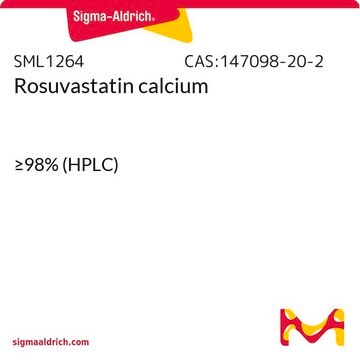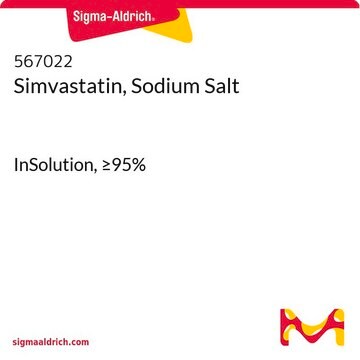Simvastatin is a specific inhibitor of HMG-CoA reductase and cholesterol lowering drug.
Simvastatin is a specific inhibitor of HMG-CoA reductase, the enzyme that catalyzes the conversion of HMG-CoA to mevalonate, an early step in cholesterol biosynthesis. It is used in the treatment of hypercholesterolemia, as it reduces levels of low-density lipoproteins and triglycerides, and raises high-density lipoprotein levels. Simvastatin is a lactone that is readily hydrolyzed in vivo to the corresponding β-hydroxyacid, and can be activated prior to use with NaOH in EtOH treatment. It is a synthetic analog of lovastatin (Cat. No. M2147).
Simvastatin is a specific inhibitor of HMG-CoA reductase,
[2] the enzyme that catalyzes the conversion of HMG-CoA to mevalonate, an early step in cholesterol biosynthesis. It is used in the treatment of hypercholesterolemia,
[1] as it reduces levels of low-density lipoproteins cholesterol and triglycerides, and raises high-density lipoprotein levels. Simvastatin is a lactone that is readily hydrolyzed
in vivo to the corresponding β-hydroxyacid and can be activated prior to use with NaOH in EtOH treatment. It may also have beneficial effects on endothelial function, inflammation, smooth muscle cell function, vascular wall function,
[5] hemostasis and LDL oxidation.















